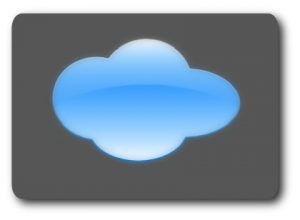
What is Cloud Computing?
By Ross Madden
Published on September 30, 2009 4:26 pm MT Updated on December 7, 2020 12:48 pm MT Posted in General CNSIT, The Cloud
The term ‘Cloud Computing’ has started to emerge with more frequency over the past few years. It seems that every new service is operating in the “cloud” and we should be embracing it. So what exactly is the “cloud” and how can we embrace it?

If you have ever seen one of those network diagrams showing computers, workstations, servers and how they connect to each other they always seem to be connected to the Internet which was denoted as a little “cloud” (click here for an example) – this symbolism has evolved the terminology we use today to refer to the Internet and the services it provides. Services such as Gmail, Flickr, Amazon all exist on the Internet or “cloud”. We do not physically have these programs installed on our personal computer, but rather use our personal computer to access them. This “cloud” concept allows us to access resources and services “on demand” rather than physically owning and understanding how they work.
According to Wikipedia “Cloud computing customers do not generally own the physical infrastructure serving as host to the software platform in question. Instead, they avoid capital expenditure by renting usage from a third-party provider. They consume resources as a service and pay only for resources that they use.” For example, Netflix allows us to watch movies on demand using a monthly subscription plan. We do not actually own physical copies of the movies we watch – we access these resources when we want them.
As these services become more and more popular, trimmed down and inexpensive hardware used to access these services is also rising in popularity. The ultra portable and vastly less expensive (compared to a standard laptop) class of computers, termed Netbooks, is one example of hardware designed to work almost exclusively with these cloud services. Netbooks are designed for accessing web services, and little else due to their underpowered Intel Atom processors. These weak little machines do great on the Internet, and have incredible battery life, but really chug if you want to do anything require some muscle such as Photoshop or video editing. Fortunately for us, (at least from my experiences) much of our time spent on a computer doesn’t require anything beyond the strength offered in these little devices.
To add to the list of services we use on the Internet, Microsoft Office 2010 will come with an slimmed down version of the software that will install in the “cloud” to provide Office applications to licensed users regardless of the computer they use.
I hope this little blurb made some sense. Enjoy!
